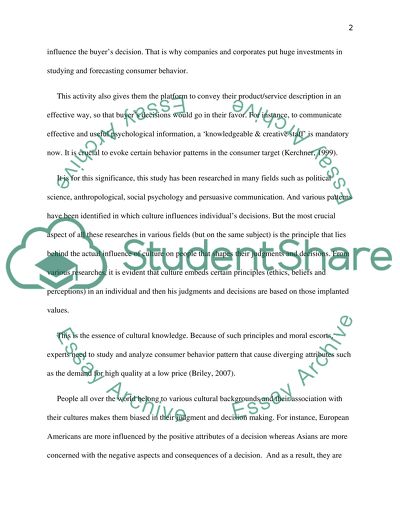Cite this document
(“Does an Individuals Own Culture Affect the Decision-making Thesis”, n.d.)
Retrieved from https://studentshare.org/psychology/1587097-does-an-individuals-own-culture-affect-hisher-decision-making
Retrieved from https://studentshare.org/psychology/1587097-does-an-individuals-own-culture-affect-hisher-decision-making
(Does an Individuals Own Culture Affect the Decision-Making Thesis)
https://studentshare.org/psychology/1587097-does-an-individuals-own-culture-affect-hisher-decision-making.
https://studentshare.org/psychology/1587097-does-an-individuals-own-culture-affect-hisher-decision-making.
“Does an Individuals Own Culture Affect the Decision-Making Thesis”, n.d. https://studentshare.org/psychology/1587097-does-an-individuals-own-culture-affect-hisher-decision-making.


